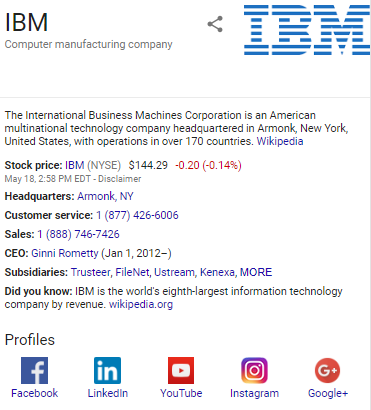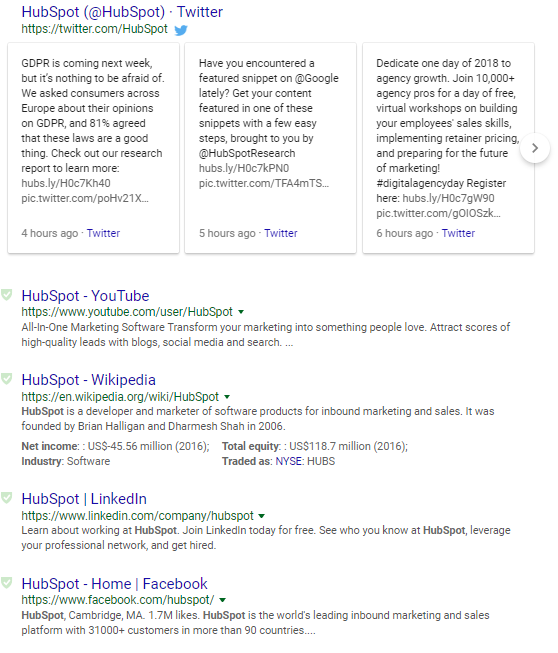How Social Media improves SEO

Marketers have a finite amount of time on their hands, and they need to spend that time wisely. Is it worth spending time and effort crafting a social media SEO strategy, or is that wasted energy? We’re going to answer common questions often posed by digital marketers, the primary one being:
Does social media marketing improve SEO?
Let’s take a look.
But first, here's a glossary to guide you through the post.
| SEO | Search Engine Optimization. The process of obtaining web traffic from sites like Google, Bing, and Yahoo through the application of technical and creative strategies. |
| SERP | Search Engine Results Page. The web page that results from a user’s search query. It displays relevant search results, as well as snippets and advertisements. |
| Social media | Platforms that enable web users to virtually interact and engage with one another. Some examples include Facebook, Twitter, LinkedIn, Snapchat, and Instagram. |
| Social signals | User engagement metrics that show how well a piece of content is received. Examples include likes, dislikes, views, shares, pins, votes, and comments. |
How does social media impact SEO?
The first question that needs to be answered is how social media impacts SEO. Social media signals do not affect search engine ranking directly. Google made this very clear when Matt Cutts, the company’s (now former) head of search quality, announced that likes, followers, and other social signals have no effect on Google rankings.
Social media does, however, indirectly impact SEO. SEO professionals are able to leverage the power of social networks to improve their organizations’ visibility and searchability. So, while search algorithms don’t calculate social media when determining a company’s ranking, they do consider many things that social media offers.
Think about it this way: When grading a test, a teacher doesn’t give you a higher score for studying — but if you study, you get a higher score. The same goes for social media. Search engines don’t give you a higher ranking just for using social media, but if you use social media, you get a higher ranking. How does this work, exactly?
Social media increases your website traffic
One of the most obvious (and measurable) ways in which social media helps marketing efforts lies in its ability to drive website traffic. Search engines track the quantity and frequency of visits to a site. Sites with large volumes of website visitors are more likely to be of higher quality than those with very little direct traffic. An SEMrush study on the most important ranking factors for SEO cites direct website visits as an extremely important factor for SERP positioning.
Social sharing drives traffic to your website. By posting links and engaging your social network, you’re encouraging website visits. This builds your website credibility while simultaneously building your social credibility.
Social media helps you appear in more search results
Social networks are appearing in search engine results more and more frequently. When you type a business name into the search bar, their social media profiles will likely appear.

Even if your company doesn’t have these social snippets, your SEO can still benefit from social networks. If a person searches for your business, not only will your website appear as a search result, but your various social profiles will, too.

This grants you much more visibility on search queries and increases the likelihood of a user choosing your business over another.
Social media is instrumental with link building
Backlinks are arguably the most important factor for high rankings in Google. Social media is great for link building. When you share your content on Facebook, Twitter, and LinkedIn (to name a few), you’re putting it in front of a larger audience. As a result, you increase the likelihood of people reading your content and linking to it from their own sites.
Remember — quality over quantity. People are more likely to share good content. Flooding a person’s social feed with blog after blog in the hopes that something may stick is an ill-advised strategy. Instead, take the time to create worthwhile pieces of content. If you don’t have time, consider utilizing the services of an external agency.
Don’t underestimate the power of linkless mentions, either. When it comes to link building, search engines are getting smarter. Especially on social media, word-of-mouth marketing is linkless. For example, a review might mention a brand or business without linking directly to its website. Other forms of linkless mentions can be found in articles, forums, blog or video comments, transcripts, testimonies, and on social platforms. Search engines have the ability to pull these data points and ultimately use these linkless mentions as a ranking factor.
Social media improves brand awareness
Use social media for brand awareness because that’s where your audience is. Facebook has 2.01 billion monthly active users. YouTube has 1.5 billion active users, and over 5 billion video views each day. Twitter has 336 million active users that send out hundreds of millions of tweets daily. LinkedIn boasts 106 million active members across 200 countries.
By tapping into social networks, brands are able to build awareness and target specific audiences. Brand awareness is huge.
Think about it. If you're searching for nearby restaurants on Google, you don't necessarily click on the first search result. You scan the top 5-10 and if a familiar name pops out, you'd likely click on it. Google's algorithm works in such a way that if enough people are skipping over the top results in favor of a lower ranked page, they'll boost that page.
Done right, if you're promoting your brand on social media, you're increasing the odds that your audience will see your company and choose you over your competition. Search engines take note of this and will adjust the SERP accordingly.
Social media platforms act as search engines
Neil Patel, a top digital marketing expert and famous influencer, makes a good point: social media networks are search engines. The goals you have for organic searches are the very same ones social media platforms can assist you with:
● Growing your brand awareness
● Building trust and authority
● Driving more traffic to your website
● Converting that traffic into sales
● Improving your customer service
Users often turn to social media platforms to answer questions, find business recommendations, and learn about organizations. So, as you use social media to improve your SEO, you also make yourselves more accessible to the modern internet user.
Reap the benefits of social media marketing — for online visibility, web traffic, brand recognition, content distribution, and yes, for SEO.













